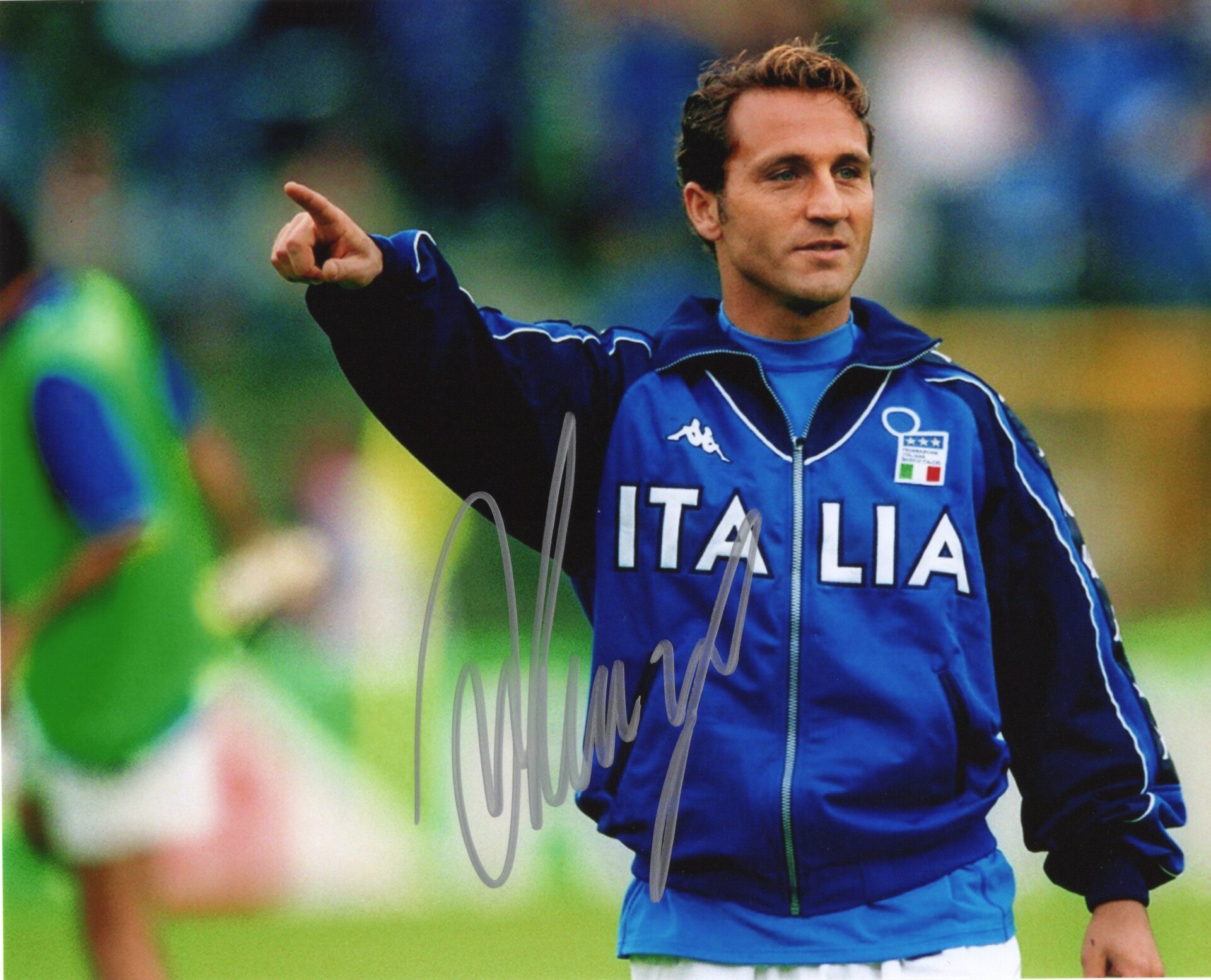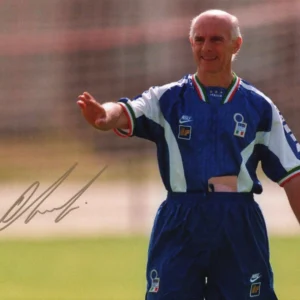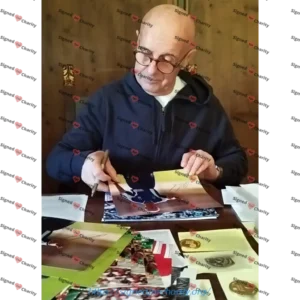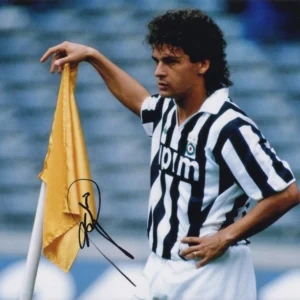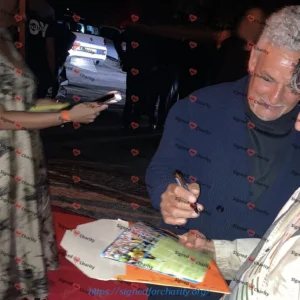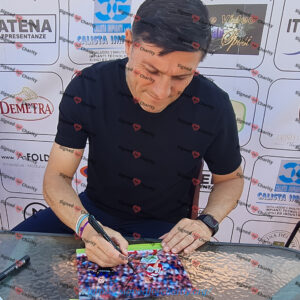Description
Club career
Born in Rome, Di Livio began his career with Roma in 1984. Having failed to make an appearance in his only season for the club, Di Livio played for Reggiana (1985–86), Nocerina (1986–87), Perugia (1987–89), Padova (1989–93), Juventus (1993–99) and Fiorentina (1999–2005). His tireless running and quality crossing made him an important element in the dominant Juventus starting lineup from 1993 to 1999, during one of the most successful periods in the club’s history. With Juventus, he won three scudetti (Italian A League; 1995, 1997, 1998) and one Champions League title (1996), in addition to two Italian Supercups (1995, 1997), a Coppa Italia, an UEFA Supercup (1996), and an Intercontinental Cup (1996); he also reached the final of the 1994–95 UEFA Cup. In 1999, he moved to Fiorentina, where he captained the team to win the Coppa Italia during the 2000–01 season. In 2002, when AC Fiorentina went bankrupt and was reborn as Florentia Viola in Serie C2, Di Livio showed his dedication by being the only player to stay with the team, as he played through the depths of Italian football on the climb back to Serie A in 2004, finally retiring after the conclusion of the 2004–05 Serie A season.
International career
Di Livio was capped 40 times for Italy. He played for Italy at Euro 96, the 1998 FIFA World Cup, Euro 2000 (where Italy finished in 2nd place), and the 2002 FIFA World Cup. His first cap came on 6 September 1995 against Slovenia; his last on 18 June 2002 against South Korea. At Euro 1996, he set-up Pierluigi Casiraghi’s first goal in the team’s 2–1 win in the opening group match against Russia. For Italy, he was often used as a holding player to shut down games when the team was ahead, thus sealing the win.


